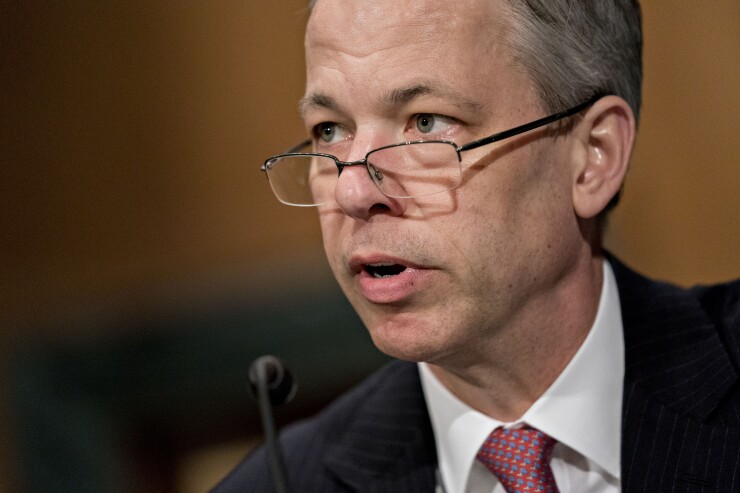This week, the Senate Banking Committee held a
But the fact that this nomination is flying under the radar is not surprising. The OFR is arguably the most important piece of the Dodd-Frank Wall Street Reform and Consumer Protection Act that is never discussed. Despite its lack of public attention, the OFR’s crucial financial stability role demands a leader willing to aggressively execute its lofty mission. Unfortunately, President Trump’s nominee to lead the OFR is more likely to defang and defund the agency than to strengthen it.
In the lead-up to the 2007-2008 crisis, financial regulatory agencies did not have a good grasp of how risks that were building across and outside of their specific jurisdictions could threaten financial stability. Regulators were not sharing sufficient data with one another and there were significant pockets of the financial sector where data was not available to any regulator. The Dodd-Frank Act sought to address this issue, in part, by creating the Office of Financial Research.

As Sen. Jack Reed, D-R.I.,
In its first seven years, the agency developed new financial stability
But the immediate future of this crucial financial stability resource does not look promising. Under the influence of the Trump administration, the
President Trump’s nominee to lead the agency, Dr. Dino Falaschetti, seems like the wrong person to reverse this trend. Falaschetti most recently served as chief economist of the House Financial Services Committee for Chairman Jeb Hensarling, R-Texas. He was one of the architects of Hensarling’s Financial Choice Act, which was passed by the House in 2017 and would gut key pillars of the Dodd-Frank Act. One of the bill’s provisions is particularly noteworthy given Falaschetti’s nomination: Section 151 of the Choice Act repeals the OFR.
Someone who has fought to close the OFR’s doors should not be given the authority to lead it. As director, he will have the authority to effectively defund the agency and restrict its research output. If Falaschetti doesn’t think the office should exist, then giving him the chance to shut it down from within would be a serious mistake. His nomination is eerily similar to President Trump’s decision to name Mick Mulvaney as acting director of the Consumer Financial Protection Bureau — an agency Mulvaney voted to abolish and once called a “sick, sad” joke.
Instead of working to tear down the agency, the next director should aggressively exercise the OFR’s powerful authorities to enhance financial stability. First, the next director should undo severe budget and staffing cuts and look to further build the agency’s research and data capacity. Next, the director should use the agency’s subpoena authority to acquire data on segments of the financial sector where systemic risk-related data gaps remain. The hedge fund industry is one area where — despite new disclosures mandated by Dodd-Frank —
Finally, the next director should support long-term, innovative research on emerging risks in the financial sector and on the next generation of tools that regulators can use to ensure the resiliency of the financial system. Much of the OFR’s work has focused on the causes of the 2007-2008 financial crisis and the policy response. While this line of research is important, the next director should place an emphasis on longer term projects that seek to look around the corner.
Based on the nominee set forth by the Trump administration to lead the agency, it does not look like the OFR will achieve its full potential anytime soon. Perhaps one day, under the right leadership, it will — if it’s not completely hobbled in the interim.





